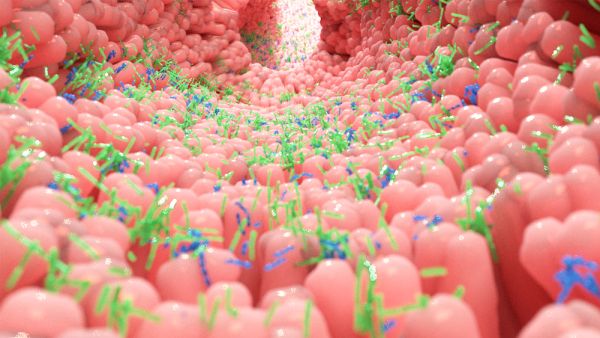A new US study found that gut bacteria have links to an abnormality known as the cavernous angiomas (CA) which can increase the chances of stroke.
Cavernous angiomas are abnormally dilated blood vessels with a raspberry-like appearance. A person may inherit certain gene variants that make developing CA more likely, however, previous research on mice has shown that the gut microbiome may also affect CA.
The microbiome is the collective genome of approximately 100 trillion micro-organisms, primarily bacteria that live in a person's gut.
During the new study, which was published in the recent issue of the Nature Communication journal, the authors conducted an advanced genomic analysis of the stool samples of 122 people with at least one identified CA. They compared these samples to a control group matched for age and sex who did not have any CA.
According to a report published by the Medical News Today website on Sunday, the researchers found that the CA group had more gram-negative gut bacteria, whereas the control group had more gram-positive gut bacteria.
The study also found that particular types of gut bacteria were more prevalent in people with CA, even after they had accounted for possible confounding factors, such as sex, geographic location, or genetics. As well as indicating a link between types of bacteria and the presence of CA, the study also demonstrated that the composition of some gut bacteria could help identify how aggressive CA might be.
Finally, the study made clear that analyzing the particular type of microbiomes in combination with blood plasma could help clinicians determine the severity of a person's brain disorder.
In the Medical News Today's report, co-author Issam Awad, researcher at the neurosurgery section at the University of Chicago said: "If we managed to identify a link between the gut microbiome and CA, it may be valuable to look at the effects of diet on the microbiome and consequently, on CA. Further research should involve larger cohorts and follow-up assessments."
This article has been adapted from its original source.








